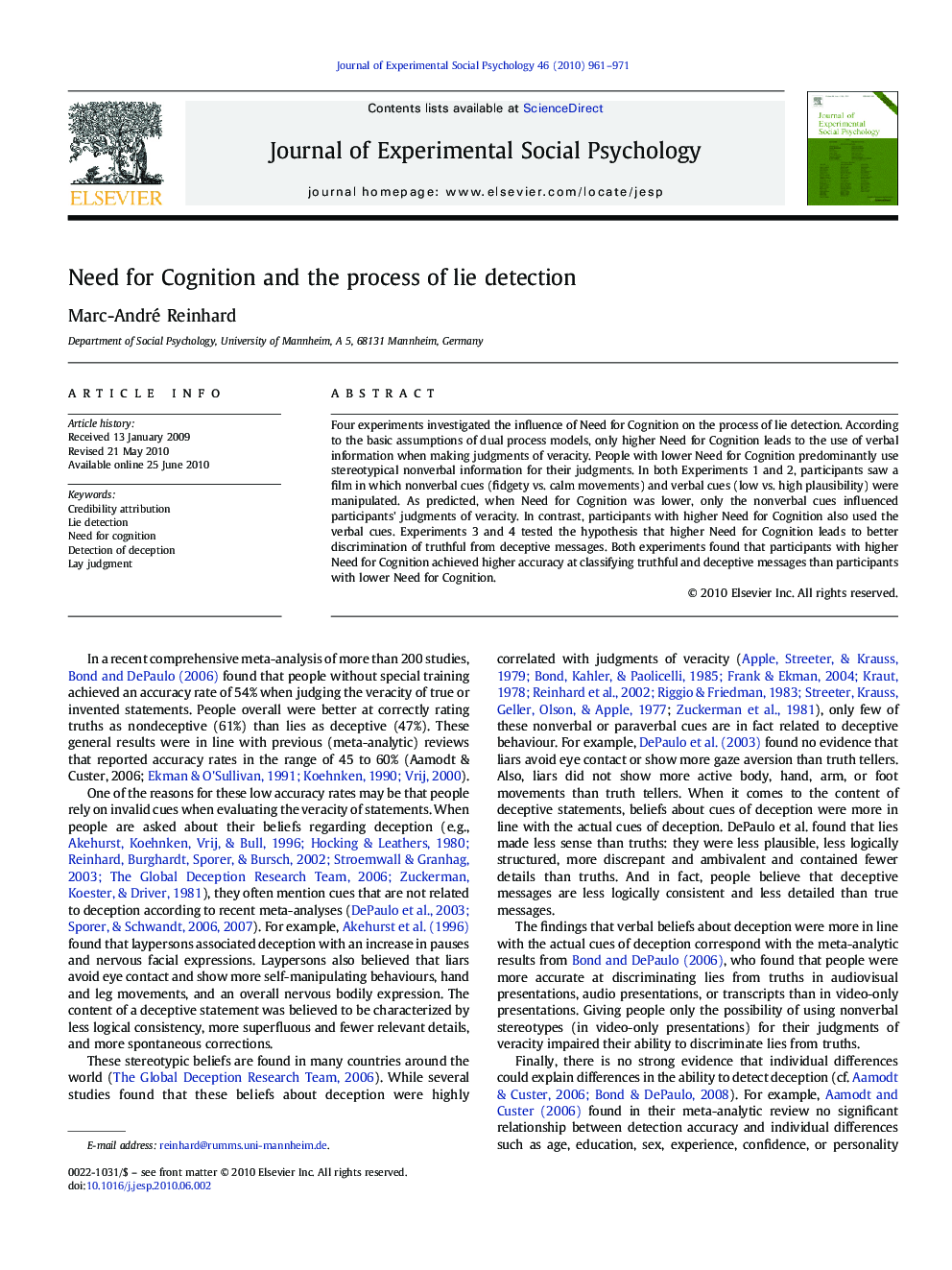| Article ID | Journal | Published Year | Pages | File Type |
|---|---|---|---|---|
| 948606 | Journal of Experimental Social Psychology | 2010 | 11 Pages |
Four experiments investigated the influence of Need for Cognition on the process of lie detection. According to the basic assumptions of dual process models, only higher Need for Cognition leads to the use of verbal information when making judgments of veracity. People with lower Need for Cognition predominantly use stereotypical nonverbal information for their judgments. In both Experiments 1 and 2, participants saw a film in which nonverbal cues (fidgety vs. calm movements) and verbal cues (low vs. high plausibility) were manipulated. As predicted, when Need for Cognition was lower, only the nonverbal cues influenced participants' judgments of veracity. In contrast, participants with higher Need for Cognition also used the verbal cues. Experiments 3 and 4 tested the hypothesis that higher Need for Cognition leads to better discrimination of truthful from deceptive messages. Both experiments found that participants with higher Need for Cognition achieved higher accuracy at classifying truthful and deceptive messages than participants with lower Need for Cognition.
